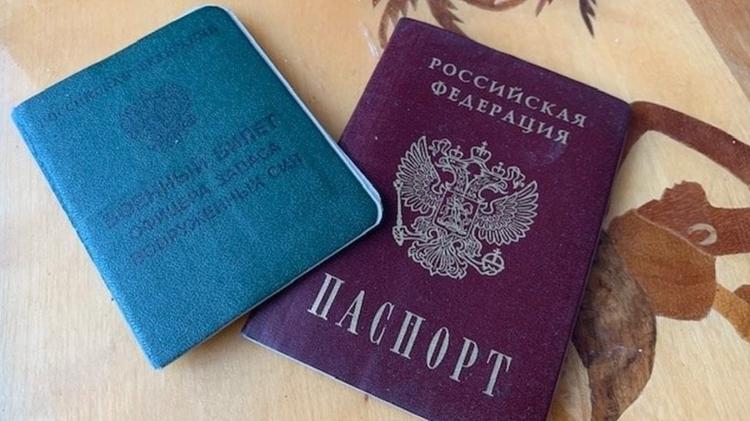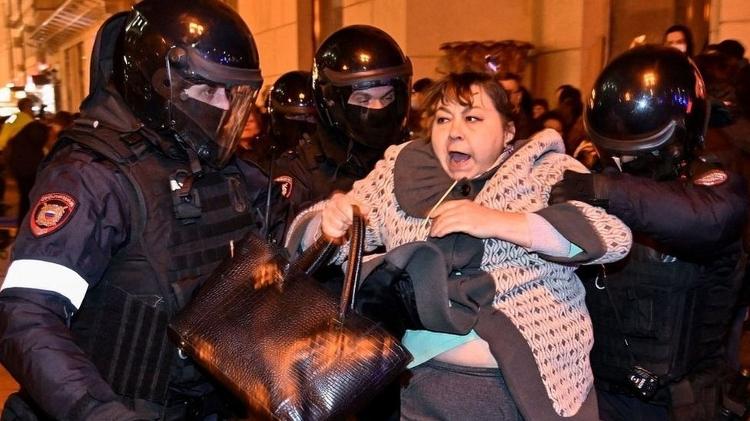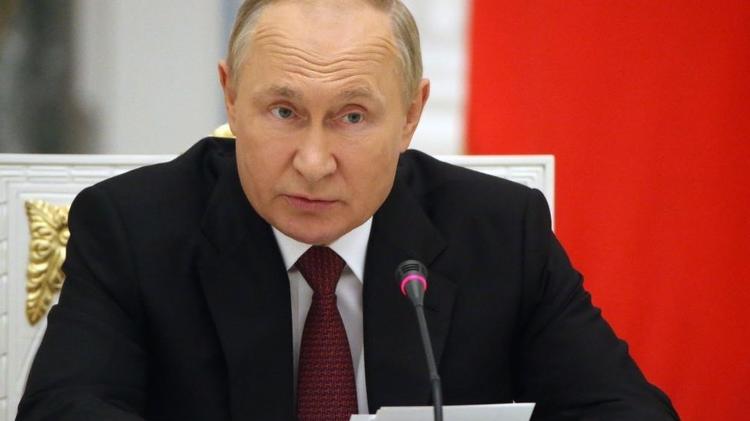Unrest has grown in Russia after Russian President Vladimir Putin (9/21) announced on Wednesday the partial deployment of additional troops to fight in Ukraine.
Putin said about 300,000 reservists would be called in to support Russian troops fighting in Ukraine.
After the announcement, thousands of protesters took to the streets in different cities of Russia and more than a thousand people were arrested.
In this context, many Russians seem to be considering leaving their country rather than protesting to avoid being sent to the front.
An example of this is when plane tickets run out or reach astronomical prices to countries where Russians don’t need a visa.
Direct flights from Moscow to Istanbul, Turkey and Yerevan, Armenia sold out on Wednesday, with no availability until next Sunday, according to data from Russia’s most popular flight booking site Aviasales.
Some stopover routes were also unavailable, including those from Moscow to the Georgian capital, Tbilisi, with the cheapest flights to Dubai costing more than 300,000 rubles, Reuters reported.
Another popular destination for Russians is Belgrade, the capital of Serbia, where Russian citizens also do not need a visa. According to several media outlets, this route also crashed due to ticket demand.
land crossing
After Putin announced the partial deployment of troops, conversations on leaving Russia on Telegram began to be filled with questions about whether men were allowed to leave the country beyond its land borders.
“We were worried about how to cross the border. But it was okay, there was no queue,” Alexander told the BBC, who entered Georgia through the checkpoint in Vladikavkaz.
He claims he left Russia in a car with three other friends. Two of them are 35- and 29-year-old men.
Alexander and one of his friends are reservists, but Russian border guards said Wednesday that they were not interested in this information.
“No one asked anything. They asked the usual questions: plans for Georgia etc. So far, no problem,” he said.
Valeria (name changed at her request) and her husband of 33 years were also allowed to cross into Georgia without question. According to him, they crossed the border at 12:30 local time on Wednesday.
“They didn’t ask anything, we went very fast, everything took an hour, no traffic jams but I think the situation will change at night,” he said.
According to the woman, she and her husband were traveling to Georgia on their honeymoon and had not planned to leave Russia for good. But after the declaration of partial mobilization, they are no longer sure of this.
Peter, 30 (who asked us not to use his real name), told the BBC he had passed passport control at St Petersburg’s Pulkovo airport and was waiting for a flight to Istanbul. Bought a ticket a long time ago.
He said he didn’t ask if anyone was in reserve at the border or if they would be affected by Putin’s announced mobilization.
Can men leave Russia?
Neither President Vladimir Putin spoke on Wednesday nor Defense Minister Sergei Shoigu said anything about whether enlisted soldiers could be prevented from leaving Russia.
Presidential spokesman Dmitry Peskov told reporters that he could not yet answer the question of whether the borders will be closed to mobilizations, and promised to clarify this issue.
According to the Interfax news agency, the Kremlin representative said, “There are different provisions on this issue in the current laws. Let’s be patient. Statements will be made on this issue.”
Zarina Doğuzova, head of the Russian Federal Tourism Agency, wrote on the Telegram channel that there are currently no additional restrictions for Russians to travel abroad.
Lawyers interviewed by the BBC’s Russian service disagree on whether the law prohibits men from traveling abroad under partial troop deployment conditions.
For attorney Alexander Peredruk, “the restriction applies to all persons enlisted in the Armed Forces, regardless of whether they are enlisted for mobilization”.
“How this restriction will work in practice and whether travel abroad will be restricted is unknown. I have seen statements from the authorities that there will be no restrictions, but it is stated in the law that it is forbidden to go out without special permission, as it is clearly stated in the law. mobilization,” he says.
Lawyer Arseniy Levinson says there is currently no law in Russia that prohibits those under partial mobilization from leaving the country. Russian law does not specify the gender of citizens who should be mobilized.
Women who have not served in ground combat units may be called up for military service if they are enlisted in the military and have specializations in categories such as computer engineering, medicine, or printing and cartography.
*With information from Amaliya Zatari of BBC Russia in Moscow
– This text was published at https://www.bbc.com/portuguese/internacional-62999342.
source: Noticias


